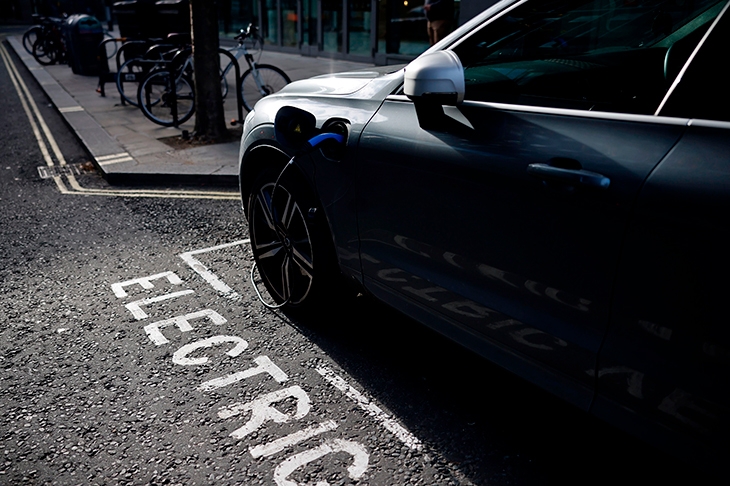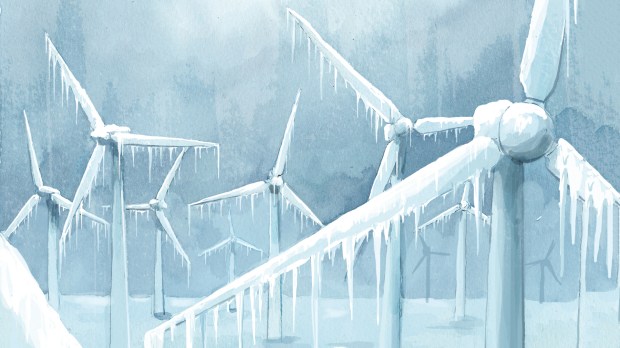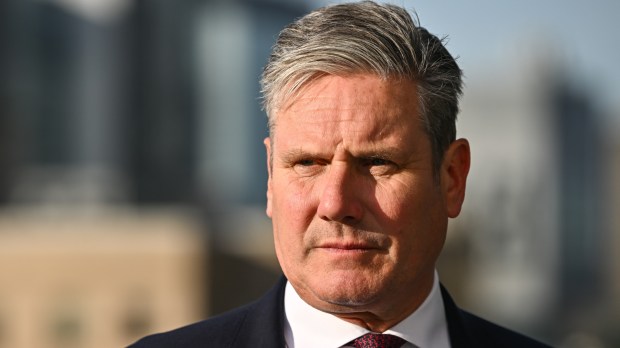The psychodrama in No. 10 is badly timed. The government has used emergency powers to ban meetings, church services and even family visits. A million jobs have gone since the first lockdown, with at least a million more to follow when the furlough money runs out. Children’s education was so badly set back by school closures that there are calls to cancel summer exams because pupils won’t be ready. Millions are facing financial ruin. A country looks to its Prime Minister for leadership.
Yet the big announcement, made on the eve of the Brexit deal Boris Johnson was elected to deliver, is that he will ban the sale of new petrol cars by the end of the decade and hybrids five years later. Cheer up, he tells voters in the north looking at financial ruin; come 2030 you’ll be installing green boilers and making electric car batteries. As Johnson knows, the number of ‘green jobs’ created by 2030 will be dwarfed by the jobs lost this year and next, but talking about the end of the decade is certainly an easier subject.
This week official figures showed a surge in loneliness and isolation. This is not simply an emotional issue. Loneliness raises the risk of Alzheimer’s, increased blood pressure and heart disease. Studies show that unvisited relatives are more likely to slip into cognitive and physical decline. The suffering elderly in Britain need to know that they have not also been abandoned by government; that the Prime Minister is alert to these issues and is moving to address them — not just dreaming about hydrogen–powered lorries.
Voters in the north of England are as concerned as everyone else about the environment — it’s the height of con-descension to suggest they’re not. But first things first: jobs, hospitals, education, crime. People understand all too well that if the economy collapses there’ll be no money for grand green projects. In his post-Dominic Cummings relaunch, the Prime Minister channelled his inner John Lennon and asked us to ‘imagine a Britain where a green industrial revolution has helped to level up the country’; one in which you ‘cook breakfast using hydrogen power before getting in your electric car… around you the air is cleaner’.
Perhaps he should instead imagine a mother or father in Burnley who voted Tory because they believed the Prime Minister understood their frustrations, and who are now desperately worried about their children’s education and whether their own parents will survive the winter. How can Johnson possibly think the (vanishingly small) chance that they’ll be using hydrogen power to cook breakfast in 2030 will be in any way reassuring to them?
To try to start this conversation when the country is locked down and days away from a Brexit decision is senseless. The energy revolution certainly is inspiring. Technological and scientific innovation has cut the cost of wind power and may well lower bills worldwide. But the plain fact is that this is happening without governmental edicts.
Harold Wilson preached the opposite gospel to Boris Johnson: Britain would be warmed by the ‘white heat’ of industrial technology, he said. Since his time, the economy has trebled in size but the air is incomparably cleaner, and sulphur dioxide emissions are down 90 per cent. Greenhouse gas emissions peaked in 1973 and are down 42 per cent since 1990. Since 1997, the average car travels half as far again on the same amount of fuel.
Consumer demand — not ministerial diktat — is the driving force of the green revolution, which can proceed apace without commentary from No. 10. Ministers can, by all means, set targets and tweak rules. But their importance is marginal. Johnson must know this. So the great green reset isn’t just bad communications for a country in dire straits; it’s disingenuous too.
If this week was intended as the rebirth of the Conservative party, it fell embarrassingly flat. The smell of desperation is starting to waft around Johnson’s government: what is its purpose? What about Brexit? Has it any comprehension of the scale of social and economic damage under way? And who will pay for the unemployment? What happens when the Bank of England stops printing money for the government to spend? People don’t know what their lives will look like in the spring, let alone 2030. Businesses don’t know if they’ll be able to reopen their doors, especially if lockdown continues under another name.
If Johnson intends to reboot Wilson’s ‘white heat’ agenda with a green heat, it will be seen as displacement activity by a Prime Minister who has run out of ideas. He should not imagine that this will lead to success in May’s local elections, let alone the next general election. Environmentalism is now part of everyday life; it’s no longer something new. The idea of our islands being the ‘Saudi Arabia of wind’ — as he now puts it — was a cliché when Alex Salmond came out with it ten years ago.
Denial is not a strategy. For Johnson to say nothing about the damage in classrooms or to refuse even to estimate the economic damage caused by his latest lockdown (the Treasury recently admitted that no work has been done on this score) is indefensible. With so much at stake, it’s a far cry from the leadership this country deserves.
Got something to add? Join the discussion and comment below.
Get 10 issues for just $10
Subscribe to The Spectator Australia today for the next 10 magazine issues, plus full online access, for just $10.
You might disagree with half of it, but you’ll enjoy reading all of it. Try your first month for free, then just $2 a week for the remainder of your first year.














Comments
Don't miss out
Join the conversation with other Spectator Australia readers. Subscribe to leave a comment.
SUBSCRIBEAlready a subscriber? Log in